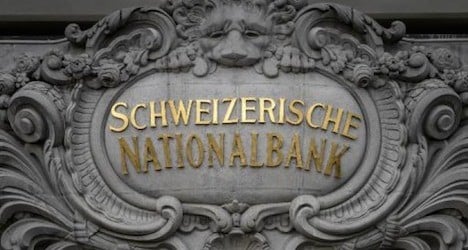“Following the United Kingdom's vote to leave the European Union, the Swiss franc came under upward pressure,” the central bank said in a statement.
It added that it had “intervened in the foreign exchange market to stabilize the situation and will remain active in that market”.
As the result of the vote became clear, the franc strengthened considerably against the European single currency, trading at just 1.06 francs to the euro at 7.00am, compared to 1.10 francs to the euro seven hours earlier.
A stronger franc hits Swiss exporters, which are forced to squeeze costs and cut prices to remain competitive on an international market.
The SNB introduced a negative deposit rate early last year after it abruptly abandoned its three-year effort to hold down the franc's exchange rate to protect exports.
Last week, the central bank voiced hope that British voters would opt to remain in the EU, and maintained it monetary policy in place.
Bank chief Thomas Jordan at the time warned that the referendum “may cause uncertainty and turbulence to increase,” vowing that “we will take measures if required”.
The bank stuck with the -0.75 percent deposit rate, which is meant to dissuade foreign investors buying and holding Swiss francs as a safe haven investment.
The target range for the three-month Libor also remained unchanged at between -1.25 and -0.25 percent.
In other post-Brexit reaction, Switzerland has opened a hotline to answer questions from concerned citizens and businesses over the consequences of the vote to leave the EU, the foreign ministry said.
The hotline, which will be operational 24 hours a day, seven days a week, was opened just hours after results showing Britons had opted to leave the European Union.
“Although the electorate of the United Kingdom has voted to leave the European Union, current regulations regarding Swiss citizens and companies remain applicable for the time being and nothing will change immediately,” a ministry statement said.
The ministry said there was “a high level of demand for information from Swiss citizens” both at home and abroad, with a list of with a list of frequently asked questions published on the home pages of the Swiss embassy in London and in Brussels.
The Swiss rejected membership in the EU in a 1992 referendum.



 Please whitelist us to continue reading.
Please whitelist us to continue reading.
Member comments